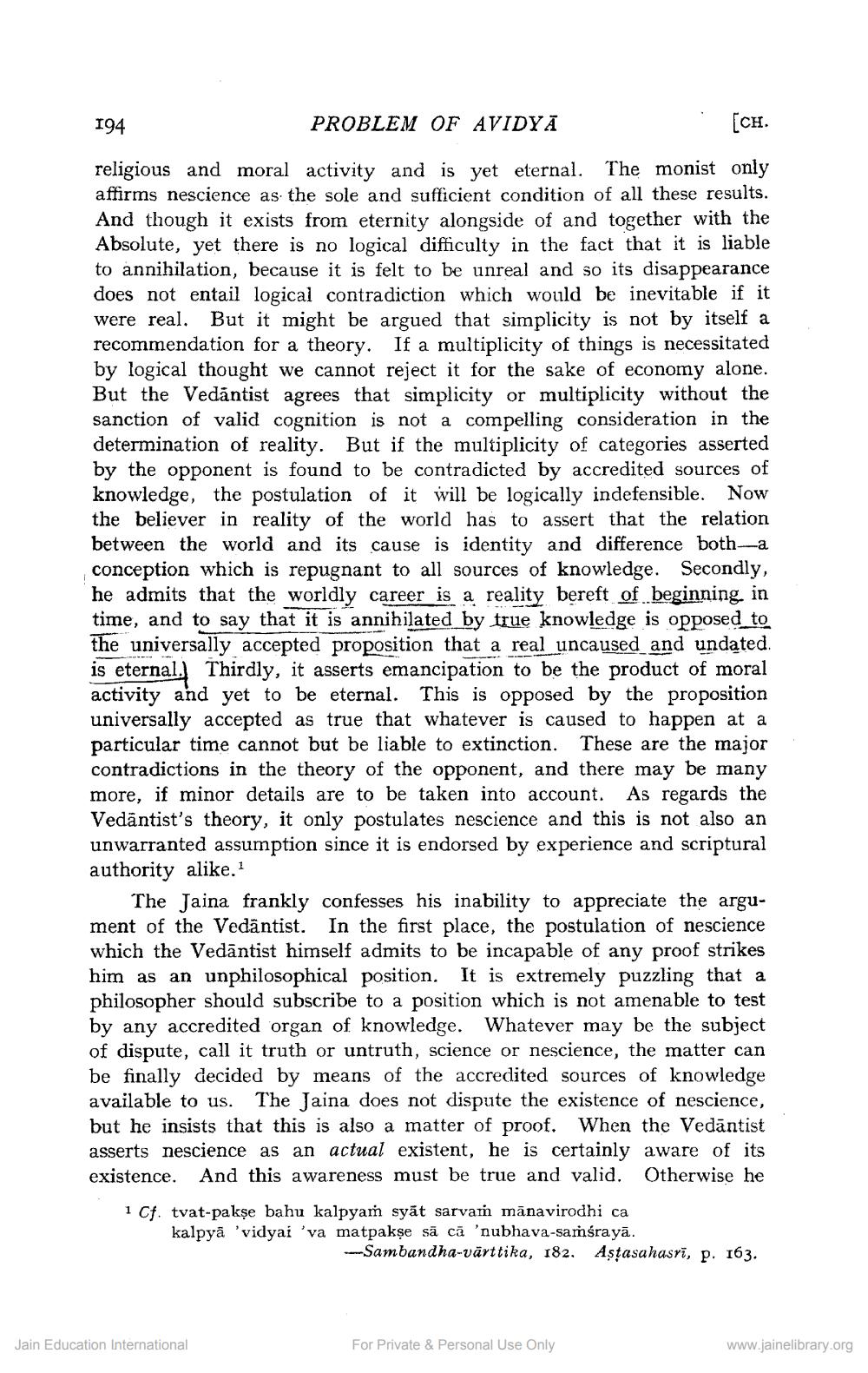________________
194
PROBLEM OF AVIDYA
[CH.
religious and moral activity and is yet eternal. The monist only affirms nescience as the sole and sufficient condition of all these results. And though it exists from eternity alongside of and together with the Absolute, yet there is no logical difficulty in the fact that it is liable to annihilation, because it is felt to be unreal and so its disappearance does not entail logical contradiction which would be inevitable if it were real. But it might be argued that simplicity is not by itself a recommendation for a theory. If a multiplicity of things is necessitated by logical thought we cannot reject it for the sake of economy alone. But the Vedantist agrees that simplicity or multiplicity without the sanction of valid cognition is not a compelling consideration in the determination of reality. But if the multiplicity of categories asserted by the opponent is found to be contradicted by accredited sources of knowledge, the postulation of it will be logically indefensible. Now the believer in reality of the world has to assert that the relation between the world and its cause is identity and difference both-a conception which is repugnant to all sources of knowledge. Secondly, he admits that the worldly career is a reality bereft of beginning in time, and to say that it is annihilated by true knowledge is opposed to the universally accepted proposition that a real uncaused and undated. is eternal. Thirdly, it asserts emancipation to be the product of moral activity and yet to be eternal. This is opposed by the proposition universally accepted as true that whatever is caused to happen at a particular time cannot but be liable to extinction. These are the major contradictions in the theory of the opponent, and there may be many more, if minor details are to be taken into account. As regards the Vedāntist's theory, it only postulates nescience and this is not also an unwarranted assumption since it is endorsed by experience and scriptural authority alike.
The Jaina frankly confesses his inability to appreciate the argument of the Vedāntist. In the first place, the postulation of nescience which the Vedāntist himself admits to be incapable of any proof strikes him as an unphilosophical position. It is extremely puzzling that a philosopher should subscribe to a position which is not amenable to test by any accredited organ of knowledge. Whatever may be the subject of dispute, call it truth or untruth, science or nescience, the matter can be finally decided by means of the accredited sources of knowledge available to us. The Jaina does not dispute the existence of nescience, but he insists that this is also a matter of proof. When the Vedāntist asserts nescience as an actual existent, he is certainly aware of its existence. And this awareness must be true and valid. Otherwise he
1 Cf. tvat-pakşe bahu kalpyam syāt sarvam mānavirodhi ca kalpyā 'vidyai 'va matpakşe sā cā 'nubhava-samśrayā.
Sambandha-värttika, 182. Astasahasri, p. 163.
Jain Education International
For Private & Personal Use Only
www.jainelibrary.org




